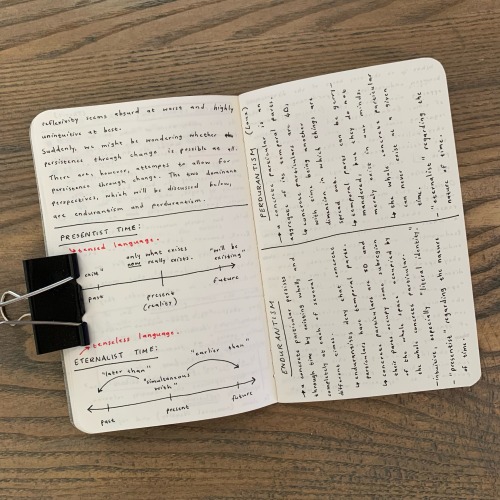Sunlight In The Reading Room


sunlight in the reading room
More Posts from Cantbreak-thecycle and Others





Arranged for your studying pleasure, Charles Bernstein’s POEM PROFILER. Got a poem to study and it’s just too opaque? Found a poem you love and want to write something similar? Want to analyse your own work? The POEM PROFILER is for you!


8/26/22- first week back on campus!!
i have the same professor in two different classes, so i'm seeing her every day and i'm honestly afraid i'll submit work for the wrong class bc they just blend together into a mega-class in my brain
Best language learning tips & masterlists from other bloggers I’ve come across
(these posts are not my own!)
THE HOLY GRAIL of language learning (-> seriously tho, this is the BEST thing I’ve ever come across)
Tips:
Some language learning exercises and tips
20 Favorite Language Learning Tips
what should you be reading to maximize your language learning?
tips for learning a language (things i wish i knew before i started)
language learning and langblr tips
Tips on how to read in your target language for longer periods of time
Tips and inspiration from Fluent in 3 months by Benny Lewis
Tips for learning a sign language
Tips for relearning your second first language
How to:
how to self teach a new language
learning a language: how to
learning languages and how to make it fun
how to study languages
how to practice speaking in a foreign language
how to learn a language when you don’t know where to start
how to make a schedule for language learning
How to keep track of learning more than one language at the same time
Masterposts:
Language Study Master Post
Swedish Resources Masterpost
French Resouces Masterpost
Italian Resources Masterpost
Resource List for Learning German
Challenges:
Language-Sanctuary Langblr Challenge
language learning checkerboard challenge
Word lists:
2+ months of language learning prompts
list of words you need to know in your target language, in 3 levels
Other stuff:
bullet journal dedicated to language learning
over 400 language related youtube channels in 50+ languages
TED talks about language (learning)
Learning the Alien Languages of Star Trek
.
Feel free to reblog and add your own lists / masterlists!
Tips for starting a studyblr, then ? Thanks!
I'm glad you asked! Here is a revival of my long ass post heheh
If you haven't already, my first tips is to make an account for your studyblr separate from any other blogs you run.
In terms of posting, I would always recommend posting anything with pictures. They don't have to be great quality or well-edited, start with anything your comfortable with; I find that posts with pics catch people attention better than simple textposts. I you feel like you want to get into editing, start playing around with some editing apps or drawing tools. Another great way to start posting is by taking on a studyblr challenge like the 100 days of productivity or the 30 days of productivity. A short introduction post is also a good idea so that other studyblrs can get an idea of your area of study, age, interests, etc.
When it comes to getting some traffic on your posts, tracking/tracked tags are a great tool to use. In case you haven't heard of them, these are certain tags that are regularly checked by their creators who will boost the posts that have used the tag. My tracking tag is #heydilli and I'll list a couple of others’ tags at the end of this post.
On a similar note, it's really helpful to follow and keep up with other studyblrs. This will help you get ideas for posts and also keep you in the loop about useful resources, new challenges, etc. Some of my fav studyblrs are listed below, along with their tracking tags if they use any:
@myhoneststudyblr (tracking #myhoneststudyblr) @ckmstudies @elysianania @elinordinary @museeofmoon (tracking #heyzainab) @notes-by-saher (tracking #heysaher) @frenchiepal @gushuwa @tranquilstudy (tracking #hiyatranquil) @acaemis @peachblossomstudy (tracking #heypeachblossom on hiatus atm) @rylie-studies (tracking #lookrylie) @rabbitstudy (tracking #heysantiago)
(sorry for the tag y'all but love you!)
So that's about all I can think about for the moment, so hope that helps. Good luck, hope that helped!
xx dilli ❤️

Some readings and resources for further exploration of medieval literature, history, and art
"The Canterbury Tales" by Geoffrey Chaucer
"Beowulf" translated by Seamus Heaney
"The Song of Roland" translated by Dorothy L. Sayers
"The Divine Comedy" by Dante Alighieri
"The Decameron" by Giovanni Boccaccio
"The Book of Margery Kempe" by Margery Kempe
"The Lais of Marie de France" translated by Glyn S. Burgess and Keith Busby
"The History of the Kings of Britain" by Geoffrey of Monmouth
"The Mabinogion" translated by Sioned Davies
"The Romance of Tristan and Iseult" translated by Joseph Bédier
In addition to these literary works, here are some resources for further exploration of medieval history and art:
"A Short History of the Middle Ages" by Barbara H. Rosenwein
"The Civilization of the Middle Ages" by Norman F. Cantor
"The Time Traveler's Guide to Medieval England" by Ian Mortimer
"The Oxford Illustrated History of Medieval Europe" edited by George Holmes
"Medieval Art" by Veronica Sekules
"A Medieval Life : Cecilia Penifader and the world of English peasants before the plague" by Judith Bennett
"The Oxford Handbook of Women and Gender in Medieval Europe" by Judith M. Bennett, Ruth Mazo Karras
The Metropolitan Museum of Art's collection of medieval art and artifacts
The British Library's collection of medieval manuscripts and documents
The Medieval Academy of America's resources and publications on medieval studies
The International Center of Medieval Art's resources and publications on medieval art
These resources should provide a good starting point for further exploration of medieval literature, history, and art.
AP Psychology notes + Resources and stuff
notes + flashcards that I used 2 study (not all my resources, found online)
Notes
Summary of every unit (16 pages)
A longer summary of every unit (53 pages)
Knowt AP Psych Guide
Doc for Notes
Unit 1 Notes - Intro to Psychology
Unit 2 Notes - Biological Psychology
Consciousness/Drugs Notes
Unit 3 Notes - Sensation/Perception
Unit 4 Notes - Learning
Unit 5 Notes - Cognitive
Intelligence Notes
Unit 6 - Developmental Psychology
Unit 7 - Motivation/Emotion/Stress
Personality Notes
Unit 8 - Disorders
Clinical Treatment Notes
Unit 9 - Social Psychology Notes
Flashcards
Quizlets
Important People
Domains of Psychology
Terms
Experiments
Knowt
AP Psychology Ultimate Guide
AMSCO AP Psych Chapters
Ch. 1 - Intro to Psychology
Ch. 2 - Research Methods
Ch. 3 - Statistics
Ch. 4 - Understanding the Brain: Its Structures and Functions
Ch. 5 - Neurons, Neural Communication, and Behavioral Genetics
Ch. 7 - Perception
Ch. 13 - Motivation
Ch. 15 - Infancy and Childhood
Ch. 16 - Adolescence and Adulthood
Ch. 17 - Personality Theories, Approaches, and Assessment
Ch. 20 + 21 - Abnormal Behavior
Ch. 22 + 23 - Treatment of Abnormal Behavior
Ch. 24 + 25 - Social Psychology
Websites
Fiveable Study Guides for each unit
Youtube - Tim Steadman
Youtube - The School of Ireland
Youtube - Crash Course Playlist - Psychology Playlist
Youtube - Mandy Rice
Youtube - College Board - AP Psychology Playlist
Youtube - Social Science Simplified
AP Psychology Reddit
Other Tumblr blogs with more resources!
@ap-psych-ology
@nuroscience
words to use instead of ______
"Very"
Mild: clearly, decidedly, distinctly, markedly, considerably, notably, largely, recognizably, especially, indubitably Moderate: especially, surprisingly, substantially, uncommonly, chiefly, incredibly, obviously, unmistakably, considerably, awfully, wonderfully, particularly Bold: profusely, unequivocally, strikingly, astonishingly, exceedingly, absolutely, exceptionally, extremely, unquestionably, vastly, incontestably
"A Lot" (time)
Mild: often, oftentimes, sometime Moderate: frequently, usually, various, generally Bold: regularly, recurrent, persistent
"A Lot" (size)
Mild: many, much, several Moderate: numerous, bountiful, considerable Bold: multitude, profuse, vast
"Big"
Mild: sizable, ample, large, considerable, great, above average, important Moderate: ponderous, significant, crucial, vast, copious, magnificent, substantial Bold: enormous, immense, colossal, extensive, endless, paramount, boundless, prodigious, imposing, gigantic, voluminous, limitless, essential
"Small"
Mild: slight, limited, trivial, minor, light, puny, superficial, undersized, dinky, negligible, faint Moderate: scant, petite, inconsiderable, microscopic, dwarf, unsubstantial, minimum, miniature, tiny Bold: insignificant, minute, meager, infinitesimal, ineffectual, undetectable, inconsequential
"Good"
Mild: acceptable, favorable, agreeable, pleasing, satisfactory, satisfying, super, able, relevant, accomplished, efficient, reliable, ample, useful, profitable, adequate, adept Moderate: great, honorable, admirable, commendable, sound, splendid, superb, valuable, wonderful, worthy, clever, proficient, qualified, apt, skillful, thorough, wholesome Bold: excellent, exceptional, gratifying, marvelous, reputable, stupendous, superior, exemplary, virtuous, expert, solid, advantageous, flawless, extensive, perfect
"Bad"
Mild: cheap, dissatisfactory, faculty, off, mean, wrong, unpleasant, unwell, low, grim, sour, regretful Moderate: careless, defective, inferior, imperfect, deficient, rough, ill-suited, inadequate, unsatisfactory, delinquent, sinful, unruly, wicked, rancid, grave, harsh, terrible, downcast Bold: awful, unacceptable, corrupt, dreadful, putrid, erroneous, detrimental, ruinous, vile, villainous, diseased, adverse, evil
more words to use instead other words to use instead even more words to use instead




yes fantasizing about your crush is fun, yes scrolling through your phone is fun. But do you know what actual fun is ? It is getting the grades you want, it is getting the university you can't stop dreaming about, it is getting the course you put hours working on. And the only way to get them is by studying hard. No you don't have to be extreme and lost sleep, all you need is dedication and discipline. So get the fuck up and start working for it.
-
 peacetea liked this · 6 days ago
peacetea liked this · 6 days ago -
 sun-delight reblogged this · 6 days ago
sun-delight reblogged this · 6 days ago -
 a-chorus-of-storytellers reblogged this · 6 days ago
a-chorus-of-storytellers reblogged this · 6 days ago -
 melancholicmuses reblogged this · 6 days ago
melancholicmuses reblogged this · 6 days ago -
 arewealloststars liked this · 3 weeks ago
arewealloststars liked this · 3 weeks ago -
 merridelicious reblogged this · 3 weeks ago
merridelicious reblogged this · 3 weeks ago -
 merridelicious liked this · 3 weeks ago
merridelicious liked this · 3 weeks ago -
 nim7791 liked this · 1 month ago
nim7791 liked this · 1 month ago -
 hopeful-mind liked this · 1 month ago
hopeful-mind liked this · 1 month ago -
 thissucks-posts liked this · 1 month ago
thissucks-posts liked this · 1 month ago -
 zanydeanstatesmanplaid liked this · 2 months ago
zanydeanstatesmanplaid liked this · 2 months ago -
 ant1gonesque liked this · 2 months ago
ant1gonesque liked this · 2 months ago -
 islaescondida reblogged this · 2 months ago
islaescondida reblogged this · 2 months ago -
 dariatarantas liked this · 2 months ago
dariatarantas liked this · 2 months ago -
 lesbionetta reblogged this · 2 months ago
lesbionetta reblogged this · 2 months ago -
 damnuealvimes liked this · 2 months ago
damnuealvimes liked this · 2 months ago -
 clairewideman liked this · 2 months ago
clairewideman liked this · 2 months ago -
 fullcherryblossomduck liked this · 2 months ago
fullcherryblossomduck liked this · 2 months ago -
 panicking-outside-the-disco reblogged this · 2 months ago
panicking-outside-the-disco reblogged this · 2 months ago -
 jesse-studies reblogged this · 2 months ago
jesse-studies reblogged this · 2 months ago -
 jesse-studies liked this · 2 months ago
jesse-studies liked this · 2 months ago -
 thephotographypalace reblogged this · 2 months ago
thephotographypalace reblogged this · 2 months ago -
 plant-thief reblogged this · 2 months ago
plant-thief reblogged this · 2 months ago -
 laurelchase reblogged this · 2 months ago
laurelchase reblogged this · 2 months ago -
 calfgazingatstarlight reblogged this · 2 months ago
calfgazingatstarlight reblogged this · 2 months ago -
 lakonike liked this · 2 months ago
lakonike liked this · 2 months ago -
 annabethisterrified liked this · 2 months ago
annabethisterrified liked this · 2 months ago -
 spiegelgold-reads reblogged this · 2 months ago
spiegelgold-reads reblogged this · 2 months ago -
 somewherenothingcaneatyou-blog1 liked this · 2 months ago
somewherenothingcaneatyou-blog1 liked this · 2 months ago -
 darkacademicc reblogged this · 2 months ago
darkacademicc reblogged this · 2 months ago -
 melancolia-erotica liked this · 2 months ago
melancolia-erotica liked this · 2 months ago -
 cloud-skye liked this · 3 months ago
cloud-skye liked this · 3 months ago -
 elysianania reblogged this · 3 months ago
elysianania reblogged this · 3 months ago -
 yourfavteenie liked this · 3 months ago
yourfavteenie liked this · 3 months ago -
 kuramason liked this · 3 months ago
kuramason liked this · 3 months ago -
 letsaroacethis reblogged this · 3 months ago
letsaroacethis reblogged this · 3 months ago -
 sowearecleariamhere liked this · 3 months ago
sowearecleariamhere liked this · 3 months ago -
 wordson liked this · 3 months ago
wordson liked this · 3 months ago -
 edusasjournal reblogged this · 3 months ago
edusasjournal reblogged this · 3 months ago -
 bluevbh liked this · 3 months ago
bluevbh liked this · 3 months ago -
 islaescondida reblogged this · 3 months ago
islaescondida reblogged this · 3 months ago -
 notkylieluz liked this · 4 months ago
notkylieluz liked this · 4 months ago -
 mistyjessart liked this · 4 months ago
mistyjessart liked this · 4 months ago -
 ngtvcr33p liked this · 4 months ago
ngtvcr33p liked this · 4 months ago -
 honeyliqhts liked this · 4 months ago
honeyliqhts liked this · 4 months ago -
 pursuitofunderstanding-blog reblogged this · 4 months ago
pursuitofunderstanding-blog reblogged this · 4 months ago -
 pursuitofunderstanding-blog liked this · 4 months ago
pursuitofunderstanding-blog liked this · 4 months ago -
 underthewingsofthblackeagle liked this · 4 months ago
underthewingsofthblackeagle liked this · 4 months ago




